My experience with the e-Power technology on the Nissan Kicks model in Thailand left me with a distinct impression. During this experience, I had the opportunity to engage in a conversation with Mr. Isao Sekiguchi – Chairman of Nissan ASEAN and Nissan Thailand, about the potential of the hybrid and electric vehicle market in the ASEAN and Vietnam region in the coming years.
The electric vehicle trend in Vietnam is currently very strong, partly due to the growth of domestic electric vehicle brands and the plans of several Chinese manufacturers to introduce electric vehicles to the Vietnamese market in the near future. Does Nissan have any specific plans for EVs in Vietnam?

Mr. Isao Sekiguchi: Nissan considers electric vehicles as an essential product for the Vietnamese market’s future. Currently, Nissan focuses on two main targets in the ASEAN market: e-POWER in the present, and EV in the near future, taking into account infrastructure conditions, consumer usage habits, and power grid capabilities.
Nissan is also actively working on developing solid-state batteries, with plans to start commercial production by 2028. Solid-state batteries will significantly transform the electric vehicle market, as they will have a major impact on vehicle costs and provide more choices for both EVs and e-POWERs in the future.
Nissan is finalizing its global mid-term plan for the period from April 2024 to March 2027, which will be announced in March of next year. This plan includes important milestones such as the plans for the ASEAN market and the commercialization of solid-state batteries.
Can you share some insights about the characteristics of the ASEAN market and the current product lineup?
Mr. Isao Sekiguchi: When introducing products in different markets, Nissan takes great care to study customer needs and evaluate whether those products are suitable for each country.
For example, the Sakura electric model has achieved success in Japan due to factors such as its operating range, charging station network, usage purposes, and customer preferences. However, whether Sakura will be successful in the ASEAN markets requires in-depth research and evaluation which we are currently exploring.
We have clear plans, and Nissan’s commitment will be demonstrated through our upcoming mid-term plan (MTP) in spring.
What is your opinion on competition from Chinese brands, as they are developing both EVs and hybrids?
Mr. Isao Sekiguchi: We are well aware of the development level of Chinese brands, particularly in recent years. Nissan acknowledges that Chinese products are advancing much faster than initially estimated. The challenges posed by strong Chinese competitors are felt not only in ASEAN but also in Asia and Europe. This is a time when Japanese brands, including Nissan, need to reassess their strategies. Our mid-term strategy, to be announced in March next year, will clearly demonstrate our approach.
On the other hand, Nissan has a strong advantage with its long history of development and operations in the Southeast Asian market. We possess advanced technology and deep market understanding, backed by a rich legacy and numerous accolades. Nissan, with over 70 years of experience in developing electric vehicles, remains a global pioneer and leader in this field. We will leverage these strengths.
Despite new competitors entering the market, Nissan continues to thrive, as evident from our business results in the first six months of the financial year 2023 (ending on September 30, 2023). During this period, Nissan’s consolidated revenue reached 6.06 trillion yen, a 1.4 trillion yen increase compared to the same period last year.
In the first half of the fiscal year 2023, Nissan’s operating profit doubled from 156.6 billion yen to 336.7 billion yen, and global sales also increased by 3.3% to 1.62 million units. Positive signals have been observed across various markets, including Japan, North America, and Europe.
Do you think e-Power technology is suitable for commercial vehicles such as pickups or buses?
Mr. Isao Sekiguchi: The suitability of e-Power for commercial vehicles depends on customer preferences and market demands. In Thailand, for example, pickup trucks are primarily used for heavy load transportation, sometimes carrying up to 2-3 tons. In such cases, the current battery technology may not be ideal. However, as technology continues to evolve, the development of commercial electric vehicles using the BEV platform is being pursued.
Nissan will introduce solid-state batteries in 2028, which will open up new possibilities for product offerings, including the potential for EV or e-Power pickup trucks. It is worth noting that despite the global trend towards electrification, in countries like China, where the adoption of electric vehicles is high, internal combustion engine vehicles remain the primary mode of transportation due to infrastructure constraints.
Another example is Japan, where the current market share of electric vehicles is only 5%. Despite the government’s incentives, the industry’s expectations have not yet been fully met.
In Japan, Nissan has introduced the X-Trail and Serena e-Power models. Is there potential for the X-Trail e-Power in the ASEAN market?
Mr. Isao Sekiguchi: Our decision to expand the e-Power model will be based on customer needs and positive feedback. Vietnam, like Thailand, is experiencing a growing wave of support for green technologies.
Nissan is committed to accelerating our plans, and we are currently finalizing the global mid-term plan covering the period from April 2024 to March 2027. This plan, to be announced in March next year, will outline important milestones, including our strategies for the ASEAN market.
Le Hung Autodaily
Nissan’s 4WD Vehicles – 65 Years of Historic Journey
After a challenging journey full of obstacles, Nissan has now established a prestigious legacy in the field of 4×4 drivetrains. Through years of research, Nissan has developed cutting-edge technical secrets and world-class technologies, propelling the brand from its early Jeep-inspired models in the 1950s to the bold and powerful vehicles we see today. Let’s take a moment to review Nissan’s renowned legacy in the SUV segment and explore the history of iconic representatives such as the Patrol, Murano, Pathfinder, Qashqai, X-Trail, and Juke through the following information.







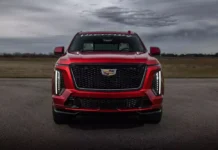
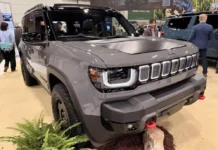
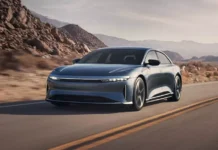















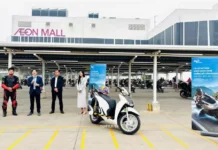


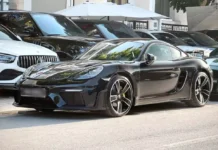




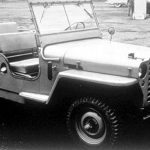
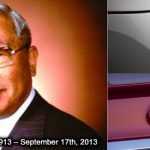
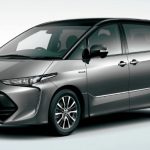
![[Quick Review] Hyundai IONIQ 5 – A Vehicle from the Future](https://vnauto.net/wp-content/uploads/2023/10/xehay-hyundaiioniq5-18052022-2-150x150.jpg)











